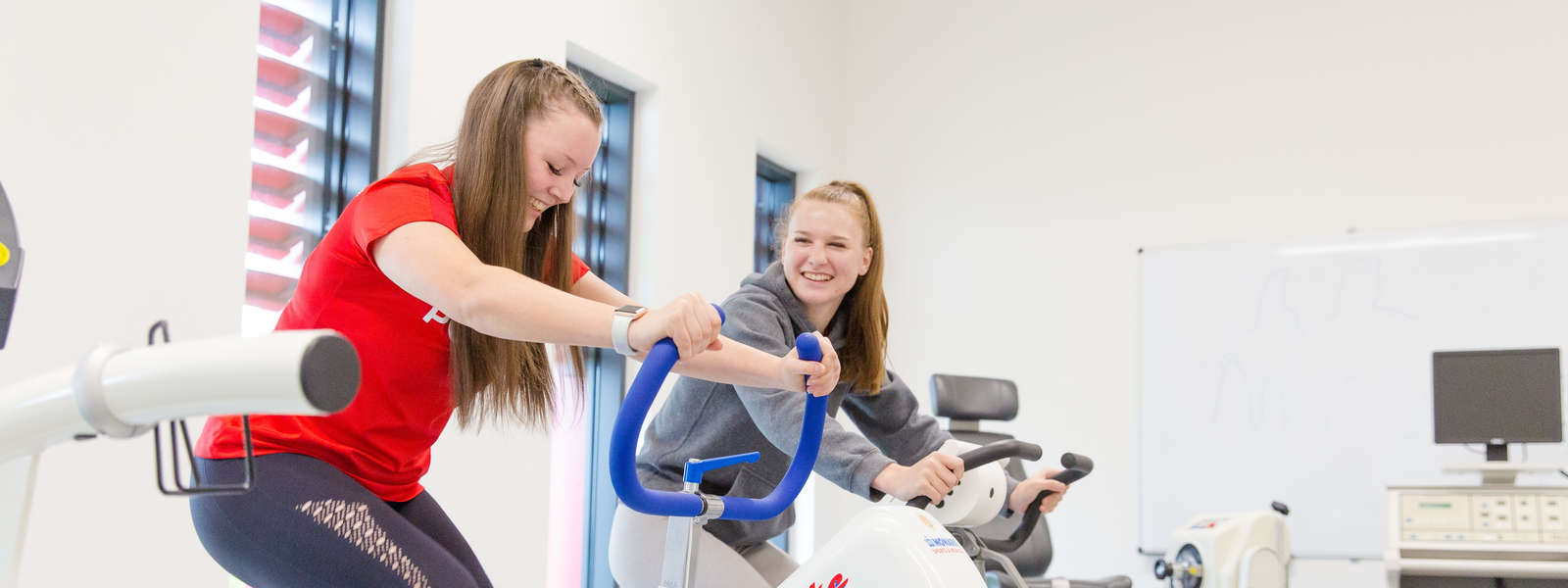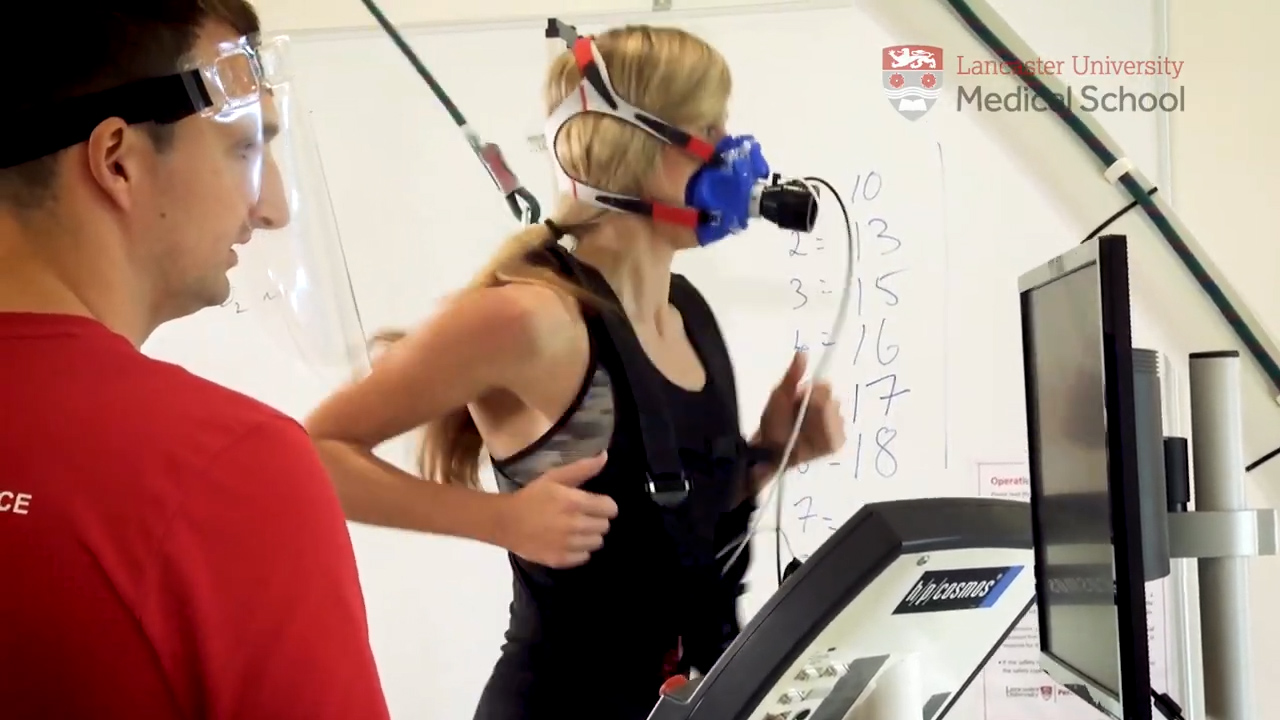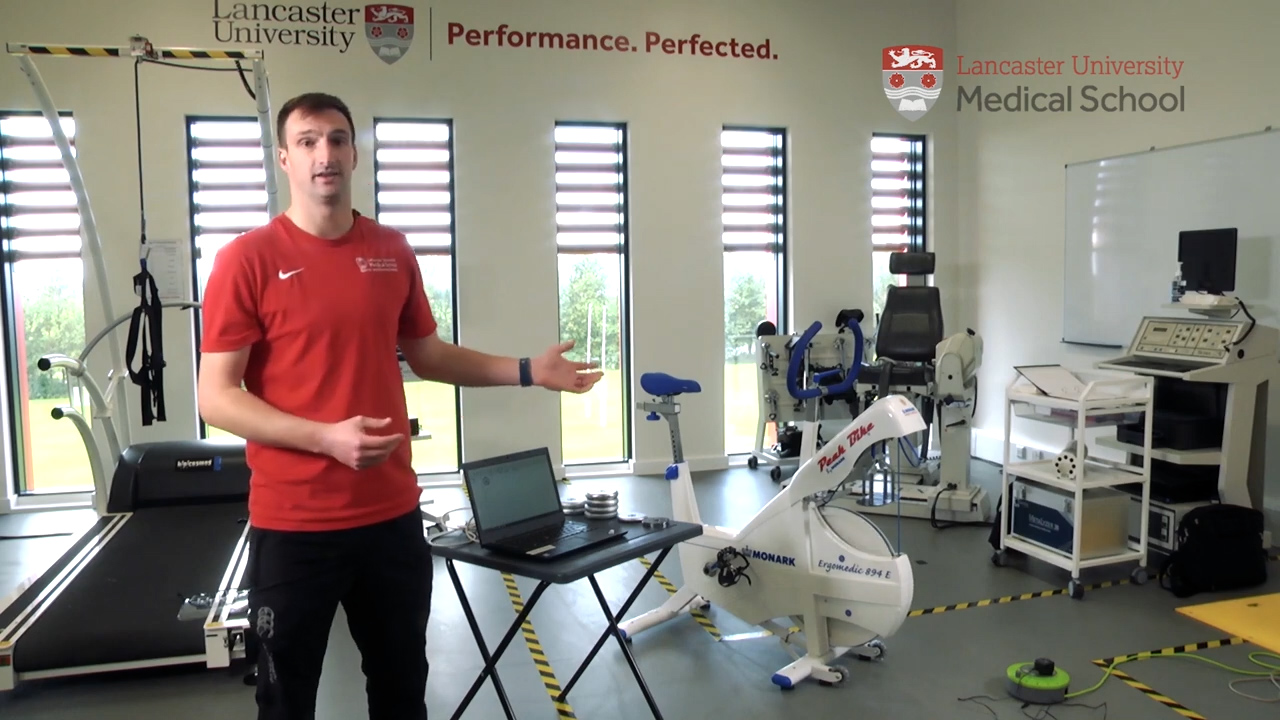Sports and Exercise Science is the study of people, how they move, how they think, and how they react under pressure. At Lancaster Medical School, we study how bodies react to exercise, from couch to 5k, to monitoring elite athletic performance. We examine how exercise is beneficial before surgical procedures, how the menstrual cycle impacts injury susceptibility, and how exercise benefits mental health. We study all this and much, much more.
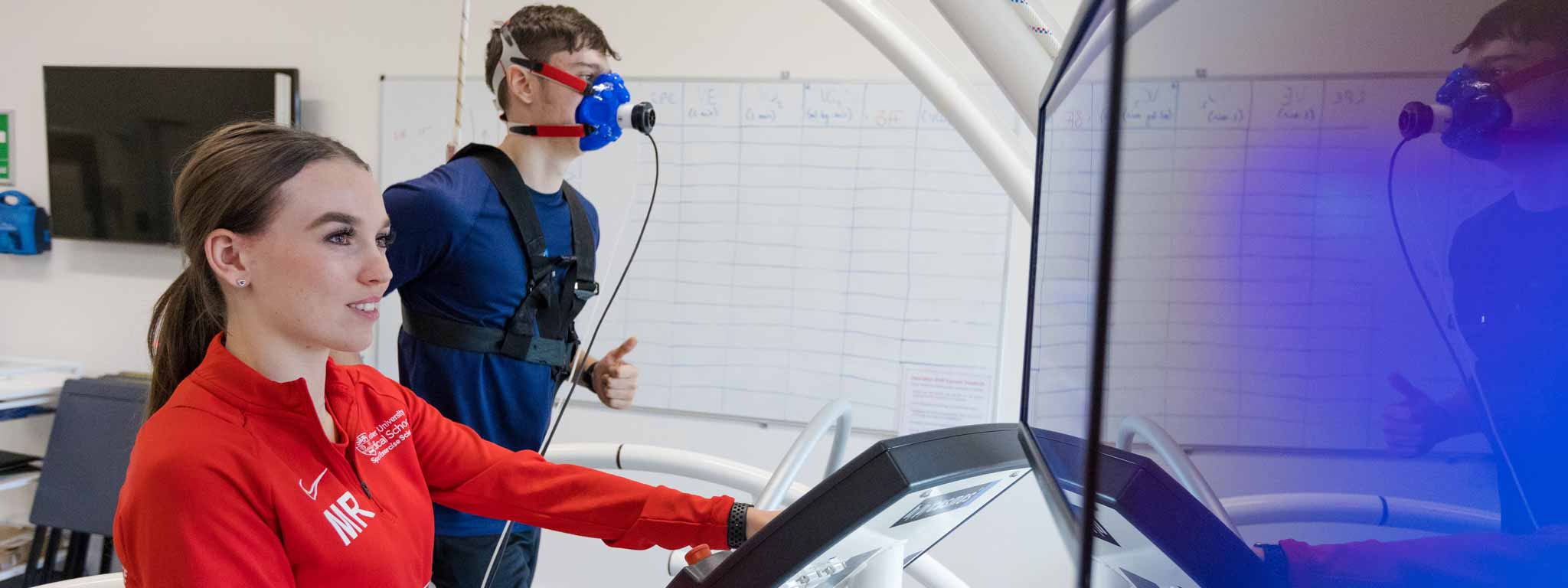
Congratulations on your offer
Book your place on one of our Offer Holder Events to experience what being a student and studying at Lancaster University is really like.
Book your placeChoose your Offer Holder Event
Use the link above to book one of the following dates:
- Saturday 24 February 2024
- Saturday 9 March 2024
- Saturday 23 March 2024
The Times Good University Guide 2024
National Student Survey 2023
The Times Good University Guide 2024
The Complete University Guide 2024
The Guardian University Guide 2024
Our students show you Sports and Exercise Science's focus on people - in sports and beyond, how they are supported and nurtured by our academic team, and how studying at Lancaster has given them the confidence to take their studies wherever they want.
Your Future
A BSc Sports and Exercise Science from Lancaster University will open doors to a career in the sports industry or beyond. It could lead to employment in the private and public sectors, including the NHS, local authorities, national sporting associations, sports governing bodies, education, professional sports clubs, public sports and recreation facilities, and the community.
Potential careers
Exercise Physiologist, Biomechanist, Sports Psychologist, Strength and Conditioning Coach, Health Promotion Specialist, Personal Trainer, Performance Analyst, or Sports Development Officer.
Further study
Progress to a discipline or specific Master’s degree in areas such as exercise physiology, or pursue a career in research with a PhD.
World class facilities
You will explore the science behind human performance in sports, exercise and health. Using our elite sporting technology, you will gain the skills to capture and analyse physiological and biomechanical data to understand human performance and activity better. You will learn how to act to enhance performance and activity - whether for competition or disease management - and how to provide feedback to an athlete, a patient or a member of the general public.
You will have classes in the Human Performance Lab from the start of your studies. These sessions will train you on the cutting-edge technology used by today’s elite athletes. These include the HP Cosmos treadmill; Biodex isokinetic dynamometer; Cortex online gas analysis system; electronically braked cycle ergometers; and our Optojump performance assessment system, to name just a few.
Our purpose-built Strength and Conditioning Room provides a workout space full of high-specification conditioning equipment. You'll have the opportunity to train or train others to a high level of performance in the first-year module Exercise Prescription. This room is home to a GHD bench, ski ergometers, watt bikes, assault bikes, Technogym skillmills, skillruns, skillbikes and skillrows.
We have invested over £4 million in new life science laboratories. In your first year, you will use these during the practical elements of Molecules of Life and Cell Structure and Function, taught by colleagues from the Faculty's highly-ranked Division of Biomedical Science.
Sports and Exercise Science EXPO2023
EXPO2023 is the last part of final-year module MED340 Professional Practice. Students are required to work in groups to communicate a specific idea in the field of Sports and Exercise Science to a diverse audience. In these films, our students show a variety of themes and ideas covering health, fitness, and beyond.
An introduction to EXPO2023
Module lead and Director of Outreach, Dr Sarah Powell, introduces Sports and Exercise Science EXPO2023.
Mind the Gap
In this film, our students explore the STEM gender gap, and look at what equity for women in sport would mean.
Be your best you
In this film, our students contrast what 'being your best you' means in the context of health versus how we might perceive what our 'best' is.
Out of sight, out of mind
Students talk about the dangers of concussion in sport.
Who Dares Wins
In this film, students talk about what you can do with a degree in Sports and Exercise Science.
The Sixth Sense
Students here talk about the 'sixth sense' or proprioception - the way we understand our body's position in space.
Your sports centre
As well as a purpose built facility for your Sports and Exercise Science studies, you'll have access to the Lancaster University Sports Centre.
Facilities include a 25 metre swimming pool with eight lanes; a climbing wall and bouldering cave designed by mountaineer Sir Chris Bonington; a high-performance strength and conditioning room; sauna and steam rooms; a sports hall with eight badminton courts; four squash courts; and a state-of-the art 100 station gym.
Sport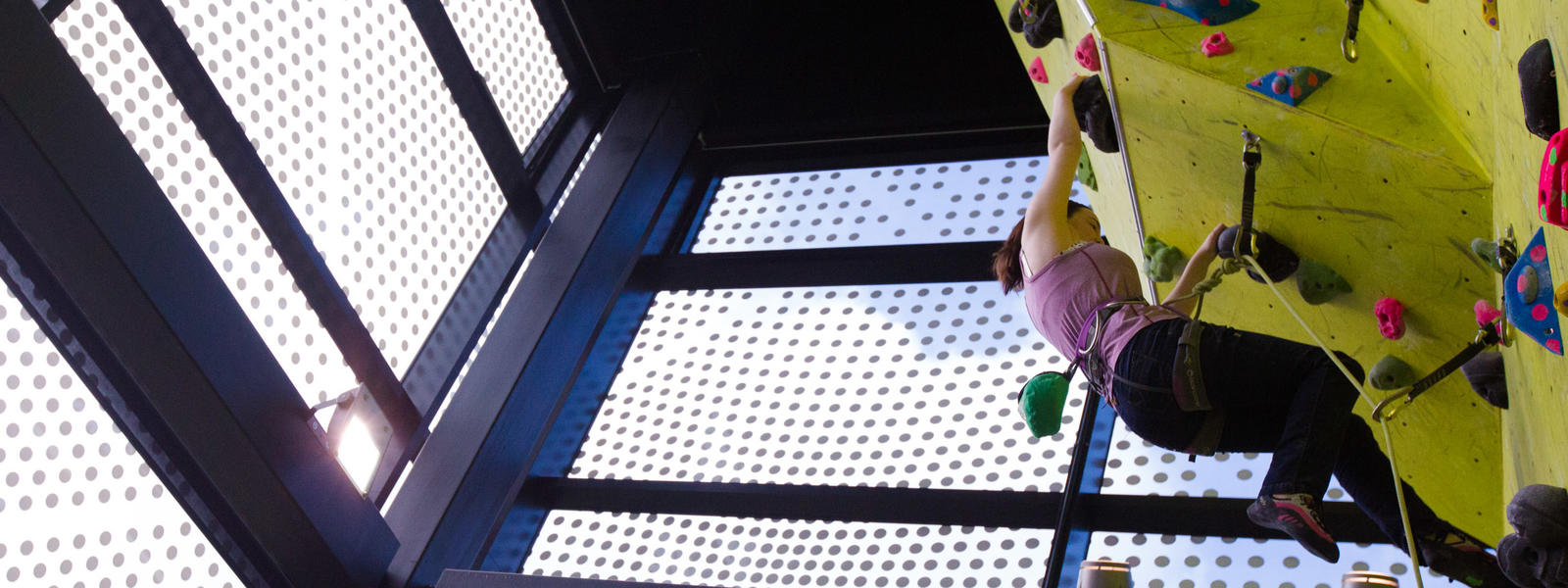
Performance Perfected Periodical
The Performance Perfected Periodical is a quarterly newsletter by Lancaster’s Sports and Exercise Science team that highlights student activities (placements, field trips etc), successes, and staff achievements and links to their latest research and publications.
Newsletter